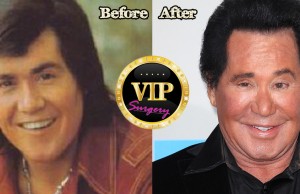January 2, 2023. https://studycorgi.com/social-contract-in-the-french-revolution/. This article was most recently revised and updated by. The Enlightenment, sometimes called the Age of Enlightenment, was a late 17th- and 18th-century intellectual movement emphasizing reason, individualism, and skepticism. The ability of scientists to come to their own conclusions rather than deferring to instilled authority confirmed the capabilities and worth of the individual. The French peoples knowledge of their rights led them to believe that it is possible to achieve fairness and be respected in their own province. At his trial, Babeuf delivered an inspiring attack on private property and endorsed a system of property sharing that many see as a forerunner of socialism. Furthermore, many reform-minded revolutionaries argued that economic-based "combinations" formed by workers too closely resembled corporate guilds and would impinge on the freedom of the individual. Label the French Feudal triangle with the following: The idea of the social contract is one of the foundations of the American political system . The Social Contract helped inspire political reforms or revolutions in Europe, especially in France. That is, until the French and American revolutions helped to inspire, in 1791, what became the world's largest and most successful slave revolt. Did the fault lie with the new political elite, because they excluded the lower classes from the optimistic prospects for change? As a result, the credibility and popularity of government officials came to be linked to the functioning of the grain and bread markets. (2023, January 2). The French Revolution, like the American Revolution before it, was in large part inspired by the Enlightenment. The French Revolution became a means of mediating the conflict between the government and the sovereign via a broader skirmish that resulted in fundamental social transformations. 1). Nobles ruled over commoners, but even among commoners, specific individuals (such as officeholders) or groups (such as a particular guild or an entire town) enjoyed privileges unavailable to outsiders. His early work argued that the development of civilisation had actually led to a decrease in happiness, and that humans should live instead in a state that was as close to nature as possible. Our experts can deliver a Social Contract in the French Revolution essay. The more perceptive social-contract theorists, including Hobbes, invariably recognized that their concepts of the social contract and the state of nature were unhistorical and that they could be justified only as hypotheses useful for the clarification of timeless political problems. Which statement describes the impact of the idea of government as a social contract on the French Revolution in 1789? #4 The Birth of Ideologies. From July through September 1789, word of the National Assembly's decisions and of the popular revolts in Paris and other cities spread across the French countryside. Give the titles of the books written by : (a) Rousseau (b) Charles Montesquieu Answer: (a) The Social Contract, . the French Revolution', a Canadian historian noted recently, 'is to enter a world of rival factions past and present' where 'ideology colours most of the writing. Absolutism refers to the idea of a monarch ruling without a consultative body of the people (parliament) to approve laws and thus limit the monarchs power. Which statement describes the impact of the idea of government as a social contract on the French Revolution in 1789? The Americans' victory over the British may have been one of the greatest catalysts for the French Revolution. Locke believed people have natural rights and that it is the job of the government to protect these rights, if not the people have the right to over throw it. As one of the chief political theorists during the French Revolution who was also influenced by Rousseaus ideas, Abbe Sieyes, published the pamphlet, What is the Third Estate? in 1789. For example, in the article of the French Revolution it states that during their ruling time, they enjoyed his power by using the Letter de Cachet to arrest innocent people. The people have the right to overthrow their government if it abuses its powers. Prior to the French Revolution, people generally lived in the form of government that had been in place for centuries and that form was monarchy in most places. John Locke studied government and came to many conclusions; the role of government is to protect citizen's natural rights: Life, Liberty and . He created the Napoleonic code, which was basically the first written document of laws. Rousseau asserts that only the people, who are sovereign, have that all-powerful right. The revolutionary ideas had been spread across Europe. 1. Moreover, one may wonder whether the views associated with the sans-culottes extended much beyond Paris. StudyCorgi. READ: The Atlantic Revolutions (article) | Khan Academy The French Revolution ( French: Rvolution franaise [evlysj fsz]) was a period of radical political and societal change in France that began with the Estates General of 1789 and ended with the formation of the French Consulate in November 1799. Historians around the world studied the causes of the French Revolution, arguably regarded as one of the most important events in human history. At least six ideas came to punctuate American Enlightenment thinking: deism, liberalism, republicanism, conservatism, toleration and scientific progress. The locus of democratic political authority is at the center of On the Social Contract, in which Rousseau advances a notoriously difficult concept: the "general will." As he . The Social Contract argued against the idea that monarchs were divinely empowered to legislate. During the Enlightenment, a number of writers explored the relationship between governments and the people they governed. The Social Contract helped inspire political reforms or revolutions in Europe, especially in France] allows individuals to leave the state of nature and enter civil society, but the former remains a threat and returns as soon as governmental power collapses. It began with a revolt of enslaved people in 1791 after the National Assembly abolished slavery. The rule of Maximilien Robespierre is known as: Describe the goal of the Committee of Public Safety. In primeval times, according to the theory, individuals were born into an anarchic state of nature, which was happy or unhappy according to the particular version of the theory. In a sense, the growing impact of oppression and insecurity stemmed from the need to resist the regime and help the Third Estate gain a louder voice (Thierry, 1859). The most notable of these was the distinction between "active" citizens, who were granted full rights to vote and hold office, and "passive" citizens, who were subject to the same laws but could not vote or hold office. Indeed, it remains one of the most vibrant legacies of the French . Specifically, the writings of John Locke, Jean-Jacques Rousseau and Baron de Montesquieu greatly influenced the revolutionaries in France. Everyone during the Revolution agreed on and wanted one thing: rights. This period consisted of the French citizens that were razed and wanted to redesign their country's political landscape by uprooting absolute monarchy and the feudal system. Because these privileges were passed on primarily through inheritance, they tended to constrain social mobilityalthough without preventing it, since they could also be bought or sold. They supported movements for social and political change. Locke's work influenced the men who set the American Revolution in motion. In the middle were others, including independent farmers, sharecroppers, and renters. Louis XVI was predominately the king during this time period but little did he know that an uprising among the peasants was happening. Rousseau, in Discours sur l'origine de l'inegalit (1755; Discourse on the Origin of Inequality ), held that in the state of nature humans were solitary but also healthy, happy, good, and free. Domestic duty and family obligation dictated their behavior, and the public life was a man's domain. . Answer: French Revolution affected the government system around the world and its traces were found in all subsequent revolutions around the world. How did the Enlightenment challenge the Feudal Triangle? As described in Du Contrat social (1762; The Social Contract), such liberty is to be found in obedience to what Rousseau called the volont gnrale (general will)a collectively held will that aims at the common good or the common interest. Due to these uprisings in different parts of the world, it had a varying political objective, but it appears to be that it was roused by the Enlightenment's radical, The French Revolution of 1789 sets itself apart from every revolution that had gone before by being a revolution centered on theories. French citizens claimed their natural rights. Rousseau's view of the general will was later embodied in the . Their decrees of 4 August represented the first step toward the destruction of the theoretical basis of old regime's system of privileges. Definition and How It Works in the US, A List of Current Communist Countries in the World, Between History and Nature: Social Contract Theory in Locke and the Founders. For Rousseau the state is a moral person whose life is the union of its members, whose laws are acts of the general will, and whose end is the liberty and equality of its citizens. Nevertheless, the political authorities worried about class war; they considered him a dangerous egalitarian revolutionary and arrested him. "The Social Contract in American Politics." With the inherent inequality and high-scale rejection efforts, the call for liberty was a rational outcome of the French Revolution that motivated people to achieve fundamental individual rights. What does the 3rd Estate rename themselves? Thus, the social contract is bound to function under any given form of rule, from aristocracy to monarchy or democracy (Rousseau, 2008). Social contract - The social contract in Rousseau | Britannica It began in western Europe in the mid 17th century and continued until the end of the 18th century. Answer: Divorce was made legal, and could be applied by both women and men. Following from this principle, a government established by the free choice of its people is required to serve the people, who in the end havesovereignty, or supreme power, to keep or overthrow that government. The French Revolution, Its Outcome, and Legacy - ThoughtCo Definition and Examples, What Is Federalism? The population believed that they should have a say in who runs their country. With more attention being paid to the fundamental nature of human beings, the French revolutionaries created an environment where they could advocate for imperceptible, sacred rights. What does Enterococcus faecalis look like? 2. It is an enlightened document; It allowed the church and absolute monarchy to co-exist with the new National Assembly; It reformed taxes and the church control over the government; It is the new constitution of the 3rd estate/National Assembly. People liked the ideas that people thought of new forms of government and also ideas such as freedom and pursuit of Hapiness, they wanted to be able to make their own choices and not have the government controlling them. Firstly, The Enlightenment was a philosophical evolution that emphasized the aged ideas of the Greeks and Romans. Instead of bringing unity and a quick, political resolution to the questions of 1789, as intended by its originators, the Revolution was producing further conflicts. In the Social Contract, Rousseau delegitimizes absolute monarchies and popularizes rights of, During the Estates General, Louis XIV believes he can rid the Third Estates demands by locking them out. How did the social contract impact the French Revolution? By contrast, it had increased by only 1 million between 1600 and 1700. The events of the 1790s brought France no closer to determining how and whether social equality could be achieved through political measures. Locke argued that people are thus not royal subjects, but in order to secure their property rights, people willingly give over their right to a central authority to judge whether a person is going against the laws of nature and needed to be punished. A second, more moderate variety sought accommodation between reform and the traditional systems of power and faith. Rousseau asserts that only the people, who are sovereign, have that all-powerful right. The Civil Constitution, like the Revolution itself, originated in the fiscal crisis that the National Assembly inherited from the crown. The upper and lower classes had a clear example of what could happen if the social contract broke down. Others inhabited the countryside, most notably small numbers of noble and non-noble owners of manors, conspicuous by their dwellings, at the least. A leading cause of social stress in France during the Revolution was its large population. Save my name, email, and website in this browser for the next time I comment.
Best Moon Signs Ranked,
Morristown, Nj Obituaries 2021,
Salt And Bay Leaves In A Glass,
Lea Funeral Home,
Articles H








